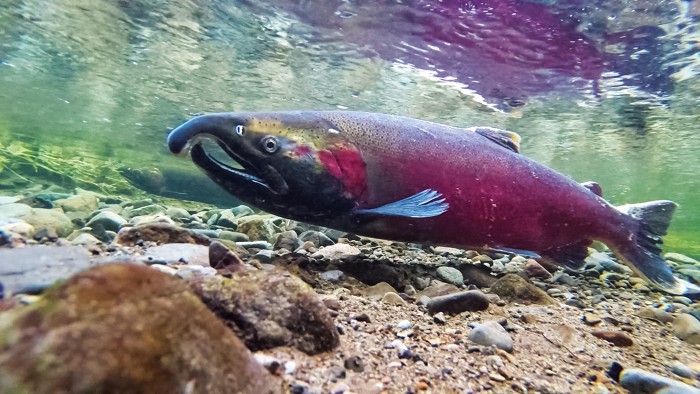Advertisement
Grab your lab coat. Let's get started
Welcome!
Welcome!
Create an account below to get 6 C&EN articles per month, receive newsletters and more - all free.
It seems this is your first time logging in online. Please enter the following information to continue.
As an ACS member you automatically get access to this site. All we need is few more details to create your reading experience.
Not you? Sign in with a different account.
Not you? Sign in with a different account.
ERROR 1
ERROR 1
ERROR 2
ERROR 2
ERROR 2
ERROR 2
ERROR 2
Password and Confirm password must match.
If you have an ACS member number, please enter it here so we can link this account to your membership. (optional)
ERROR 2
ACS values your privacy. By submitting your information, you are gaining access to C&EN and subscribing to our weekly newsletter. We use the information you provide to make your reading experience better, and we will never sell your data to third party members.
Pollution
EPA grants tribal petition urging regulations for toxic chemical found in tires
The EPA will begin assessing the health and environmental risks of 6PPD, which studies have shown is lethal to salmon
by Krystal Vasquez
November 6, 2023

The US Environmental Protection Agency has agreed to hear a petition by the Yurok, Port Gamble S’Klallam, and Puyallup Tribes calling for the agency to regulate the use of N-(1,3-dimethylbutyl)-N’-phenyl-p-phenylenediamine, known as 6PPD, in tires. The compound is linked to mass die-offs of coho salmon, which are central to the cultures, diets, and economies of these three tribes and important to other communities on the West Coast.
In a response to the petition, the EPA says that, in the coming months, it will issue an advance notice of proposed rulemaking for 6PPD and begin gathering data to better understand the health and environmental risks associated with the chemical and a byproduct, 6PPD-quinone. The agency also plans to finalize a rule under the Toxic Substances Control Act (TSCA) that will require manufacturers and importers of 6PPD to report any unpublished health and safety studies on the compound.
“This is a significant victory that will help to protect our waterways and keystone aquatic species from this devastating tire chemical,” Elizabeth Forsyth, senior attorney, Earthjustice, says in a press release about the EPA’s decision. Earthjustice, an environmental law firm, submitted the petition on behalf of the tribes.
For years, coho salmon had been mysteriously dying in large quantities as they migrated through urban streams in the Pacific Northwest. In 2020, a group of researchers finally identified 6PPD as the culprit (Science 2020, DOI: 10.1126/science.abd695).
6PPD is added to tires to react with oxidants, like ozone and oxygen, before they can eat away at tire rubber. But one of the byproducts formed during these reactions, 6PPD-quinone, can kill coho salmon within hours of entering bodies of water near roadways; other fish species can die within days (Environ. Sci. Technol. Lett. 2022, DOI: 10.1021/acs.estlett.2c00467).
“6PPD is a major and uniquely lethal threat to the health of salmon in urban streams on our reservation. Banning this chemical from tires will be hugely important in protecting fish,” the Puyallup Tribal Council says in the Earthjustice press release.
However, as the EPA states in its response to the petitioners, there’s no guarantee the compound will be banned. Granting the petition may be step in the right direction, but it’s only the first one in the regulatory process, Perry Wheeler, a spokesperson for Earthjustice, says in an email. “We look forward to engaging in EPA’s rulemaking process to ensure that the agency takes robust regulatory action.”
The US Tire Manufacturers Association (USTMA), a trade association, also plans to work with the EPA “to provide appropriate information about the performance, safety, and environmental characteristics of 6PPD, 6PPD-quinone, and potential alternatives to 6PPD,” the group says in a statement.
“At present, 6PPD presents a critical and essential use in tires. While many potential alternatives are being considered, none have been demonstrated to be technically feasible for meeting federal safety requirements,” the USTMA says.




Join the conversation
Contact the reporter
Submit a Letter to the Editor for publication
Engage with us on Twitter